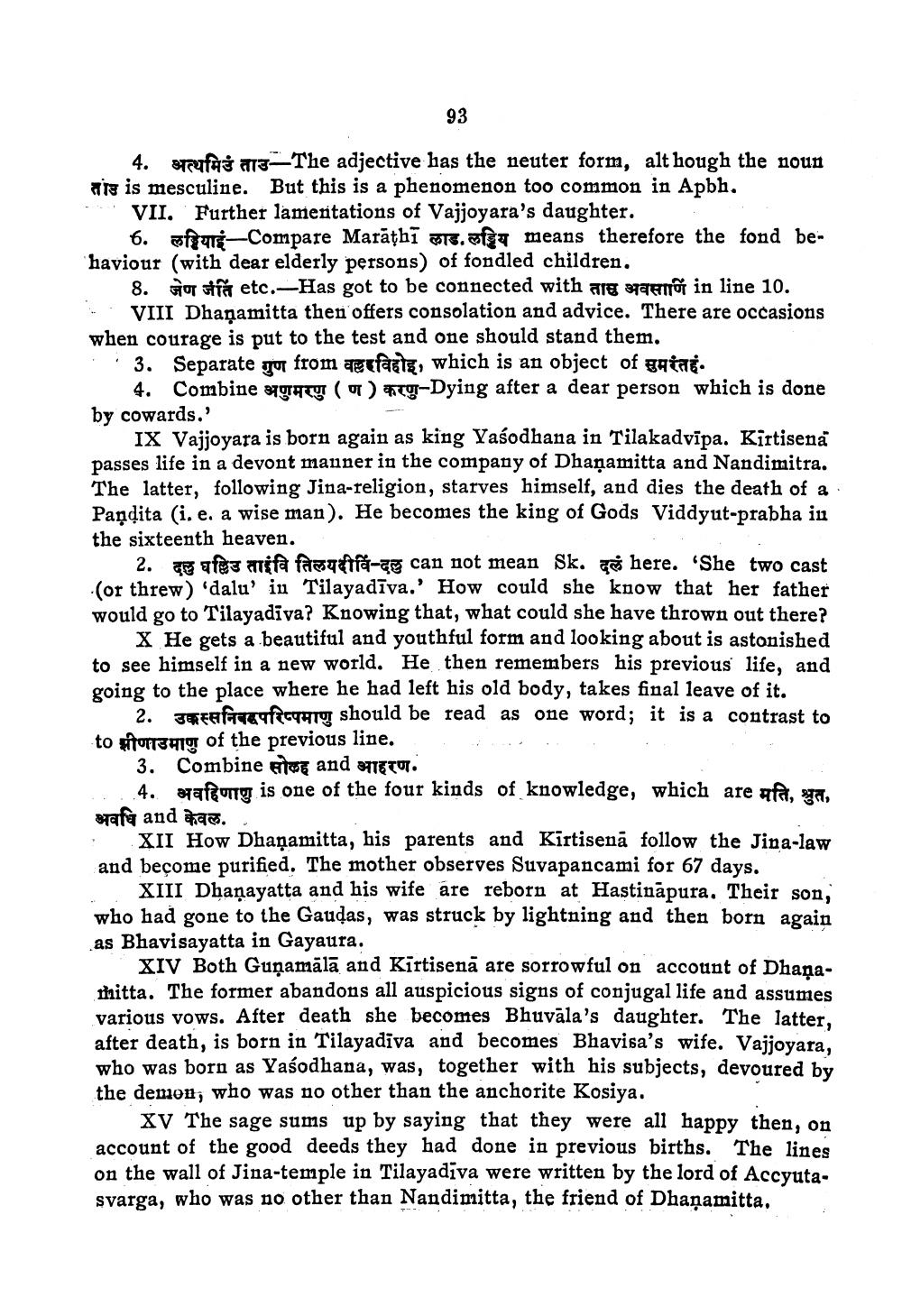________________
93
4. Spyfas ar—The adjective has the neuter form, alt hough the noun ata is mesculine. But this is a phenomenon too common in Apbh,
VII. Further lamentations of Vajjoyara's daughter.
6. f &_Compare Marathi is afst means therefore the fond behaviour (with dear elderly persons) of fondled children,
8. For sifa etc.-Has got to be connected with are farno in line 10.
VIII Dhanamitta then offers consolation and advice. There are occasions when courage is put to the test and one should stand them.
3. Separate गुण from वल्लरविहोइ, which is an object of सुमरंतह.
4. Combine (0) Fy-Dying after a dear person which is done by cowards.'
IX Vajjoyara is born again as king Yasodhana in Tilakadvīpa. Kittisena passes life in a devont manner in the company of Dhaņamitta and Nandimitra. The latter, following Jina-religion, starves himself, and dies the death of a Pandita (i. e, a wise man). He becomes the king of Gods Viddyut-prabha in the sixteenth heaven.
2. Faros atia fagetrage can not mean Sk. go here. She two cast (or threw) 'dalu' in Tilayadīva.' How could she know that her father would go to Tilayadiva? Knowing that, what could she have thrown out there?
X He gets a beautiful and youthful form and looking about is astonished to see himself in a new world. He then remembers his previous life, and going to the place where he had left his old body, takes final leave of it.
2. Genfrafcqht should be read as one word; it is a contrast to to TSHIOT of the previous line.
3. Combine सोलह and आहरण.
4. Bafony is one of the four kinds of knowledge, which are afa, ya. stafa and a ..
XII How Dhanamitta, his parents and Kirtisenā follow the Jina-law and become purified. The mother observes Suvapancami for 67 days.
XIII Dhaņayatta and his wife are reborn at Hastinapura. Their son, who had gone to the Gaudas, was struck by lightning and then born again as Bhavisayatta in Gayaura.
XIV Both Guņamālā and Kirtisenā are sorrowful on account of Dhaņathitta. The former abandons all auspicious signs of conjugal life and assumes various vows. After death she becomes Bhuvāla's daughter. The latter. after death, is born in Tilayadiva and becomes Bhavisa's wife. Vajjoyara, who was born as Yasodhana, was, together with his subjects, devoured by the demon, who was no other than the anchorite Kosiya. XV The sage sums up by saying that they were all happy then, on
of the good deeds they had done in previous births. The lines on the wall of Jina-temple in Tilayadiva were written by the lord of Accyutasvarga, who was no other than Nandimitta, the friend of Dhanamitta.
4.
AMILCA




